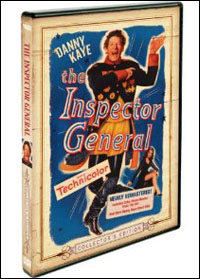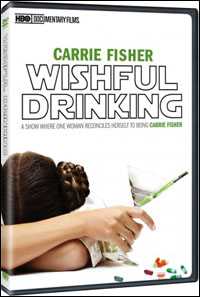
*
Movie studios periodically dig into their catalogues for titles deserving "Ultimate Collector's Edition with Extraordinary Collectibles" treatment. Warner Bros. has done just that, coming up with a true winner in their deluxe three-disc Blu-ray set of Citizen Kane: 70th Anniversary.
In 1939, RKO gambled on a contract giving unheard of control to a 24-year-old Broadway wunderkind with absolutely no screen experience as director, writer, producer or star. "We dare you," the industry seemed to taunt the novice. Until they saw the film Orson Welles came up with. "Citizen Kane" was immediately embraced by critics and the industry, if not initially by audiences, when it was released in 1941. It has long held a place near the top of all those "best movies of all time" polls, and not without reason.
Superlatives, in this case, apply. The Blu-ray is a new hi-definition restoration in 4-K resolution, and it sure looks it. Gregg Toland's camerawork is as crisp and vibrant as you'd like, and Bernard Herrmann's score is similarly revitalized. There are separate commentaries from Roger Ebert and Peter Bogdanovich; interviews with Ruth Warrick (Emily Kane) and editor Robert Wise (who himself became an award-winning director); and old footage from the premiere.
Disc 2 contains the 1996 American Experience documentary "The Battle over 'Citizen Kane'"; disc 3 has the 1999 HBO Feature "RKO 281" (with Liev Schreiber, Melanie Griffith and John Malkovich). RKO 281 being the studio-assigned production number for the project that became "Citizen Kane." The box itself contains two treats. One is a handsome and informative 48-page book giving a brief but breezily written history of the project, offset by ravishing photos. The other is a folder containing a reproduction of the original souvenir program plus 15 individual card-sized repros of ads, releases, salary sheets, and a meticulously hand-written "pre-budget estimate" on an RKO budget form. This shows a total estimated cost — as of June 14, 1940, two months before shooting started — of $1,082,798.
All of this enhances the pleasures of this box set, but it's the film itself that's the thing. "Citizen Kane" is magnificently directed and produced by Welles, from an incisive, Oscar-winning screenplay by Herman J. Mankiewicz and Welles. Orson imported the principal actors from his Mercury Theatre Company in New York, and they are quite something to watch (headed by Joseph Cotton, Everett Sloane, Paul Stewart and Agnes Moorehead). And Orson, too, as Kane, with a performance that can only be considered monumental.
*
 |
||
| Cover art for "Inspector General" |
Here is Danny as the illiterate peasant Georgi, who enters with his head on a platter — the better to grimace, clown and sputter — and takes it from there. Here is Danny singing a few of those tongue-twisting songs devised by Sylvia Fine that fit the actor so well that we can't even consider someone else trying to deliver them. Here is Danny moving like a marionette, bouncing like a rubber-band man, wildly dancing in a manner which — well, I can't imagine anyone doing half so well. The big gypsy number I needed to play back three times in order to follow what he is doing, which is something on the order of deliriously delicious madness.
Kaye was 36 here, and let me tell you: he is good. What's more, he's surrounded by a cast of fine character actors including Walter Slezak, Elsa Lanchester, Gene Lockhart, Alan Hale, Rhys Williams and Jimmy Conlin. Let us add that choreographer Eugene Loring makes the most of his limited opportunities.
This is one of those films that has for reasons unknown fallen into the public domain — odd, given its big studio birth at Warner Bros. — so it has been released by various companies over the years, usually in less than pristine condition. This newly remastered "Collector's Edition," from Shout Factory, is in fine and highly-colorful (or highly Technicolorful) shape. There are two bonuses. First come 17 minutes of silent "home movies" from the set, filmed in color by the movie's director Henry Koster (and narrated by his son, Robert). What this shows us is something that we can only glimpse in "The Inspector General": Kaye is distinctly influenced by Chaplin. (Just watch him at the catering table.)
The other bonus is, actually, worth seeking out. Back in the early days of his career, even before he reached Broadway in 1939 in The Straw Hat Revue, Kaye made a few shorts — playing a somewhat mad Russian emigree named Nikolai Nikolaevich — for an outfit called Educational Pictures (although there was nothing educational about them). "Money on Your Life" has Danny being chased through the streets of New York (?) by two Bolsheviks with long beards. A rotund comedian named Charles Kemper, who is top-billed, plays an insurance agent who sells Danny a policy and then must protect him. The whole thing is zany bordering on the absurd. The 25-year-old Kaye is immensely interesting, with a slathered-on accent and a mopful of stringy hair which he whips from side to side.
 |
||
| Cover art for "Wishful Drinking" |
(Steven Suskin is author of the recently released Updated and Expanded Fourth Edition of "Show Tunes" as well as "The Sound of Broadway Music: A Book of Orchestrators and Orchestrations," "Second Act Trouble" and the "Opening Night on Broadway" books. He also pens Playbill.com's Book Shelf and On the Record columns. He can be reached at [email protected].)
*
Visit PlaybillStore.com to check out theatre-related DVDs for sale.










